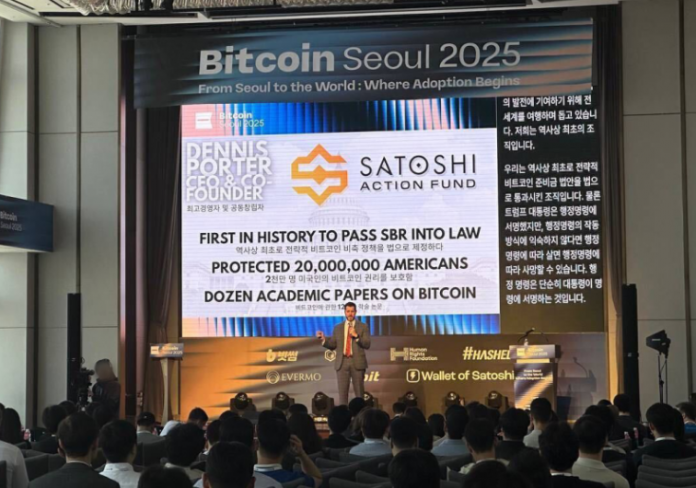
Bitcoin Seoul 2025 wrapped up with high energy and deep reflection, drawing over 1,500 participants from 30 countries. The event became a pivotal venue for discussions on institutionalizing digital assets, reforming financial infrastructure, and reshaping the custody landscape in South Korea and beyond.
In his keynote address, Preston Pysh, Partner at Ego Death Capital, offered a pointed critique of the global dollar system, calling it structurally unequal and inherently unstable. He argued that the post-gold standard financial order has created a global debt spiral orchestrated by institutions like the IMF and World Bank. In contrast, Bitcoin’s fixed supply and decentralized architecture offer a new form of “verifiable trust”, he said — a principle that fiat currencies fail to uphold.
On the second day, the “Industry Day” session spotlighted global trends such as the approval of spot Bitcoin ETFs in the U.S. and Hong Kong. The discussions emphasized that Korea must move swiftly to establish its own regulatory and supervisory framework for ETFs and broader institutional adoption. Technologies related to security, digital wallets, and real-name verification were also showcased as critical enablers for mainstream integration.
One of the event’s most pressing themes was the custody infrastructure. Panelists, including Kang Byung-ha (CIO, Wavebridge) and Jo Jin-seok (CEO, KODA), stressed the urgent need to reduce Korea’s overreliance on foreign custodians. They advocated for the expansion and separation of custody and prime brokerage functions, warning that the current system risks capital outflow and systemic vulnerabilities. According to the speakers, 90% of the regulatory guidelines for listed companies holding digital assets have already been drafted through an ongoing Financial Services Commission task force, with formal implementation expected later this year.
Another critical focus was the legislative momentum around the Digital Asset Basic Act, a comprehensive bill set to define stablecoin regulations, clarify the roles of exchanges and custodians, and implement real-time monitoring systems for financial crimes and money laundering. Industry leaders expect the law to become a turning point for Korea’s digital asset ecosystem, anchoring it firmly within institutional and legal boundaries.
More than just a showcase of blockchain innovation, Bitcoin Seoul 2025 emerged as a forum for reimagining the global financial paradigm. As cracks in the traditional fiat system widen, Bitcoin’s promise as a trust-based, decentralized alternative was elevated from speculative rhetoric to policy-level discourse. The event concluded with a clear signal: South Korea now faces a critical decision — to lead the next wave of digital finance, or risk being left behind.






